Advisor To Supreme Leader Acknowledges Sanctions Impact On Iran
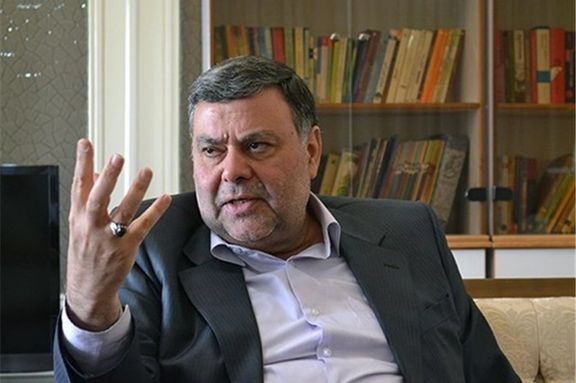
A senior official has acknowledged that Iran's plans to assume a leading role in the region by 2025 have fallen flat, blaming sanctions and ignoring impacts of nuclear issues.

A senior official has acknowledged that Iran's plans to assume a leading role in the region by 2025 have fallen flat, blaming sanctions and ignoring impacts of nuclear issues.
Mohammad Sadr, a member of Iran's Expediency Council, made the remarks in reference to Iran's ambitious long-term development plan encapsulated in the Twenty-Year Vision Document of Iran, in place since 2005
Initiated on the recommendations of the Expediency Council, an advisory board for the Supreme Leader which also settles disputes between Iran's parliament and Guardian Council over legislation, 2025 was meant to be the culmination of the grand plan.
However, Sadr said: “The realization that robust economic growth is imperative for establishing a stronger international presence has prompted these nations to actively seek foreign investments and attract foreign capital, leading to ongoing advancements in their economic landscapes.”
Heavily sanctioned for years, foreign direct investment (FDI) in Iran has been a major hindrance. Meanwhile, the United Arab Emirates, with a population of just 10 million, has dwarfed Iran to be MENA's top FDI nation.
According to the World Investment Report 2023 issued by the United Nations Conference on Trade and Development, the value of foreign direct investment inflows to the UAE in 2022 amounted to $22.737 billion, ranking 16th globally in FDI inflows in 2022. It was also ranked top in the West Asia region.
Sadr attributed Iran's failings on sanctions, saying that “countries eager to engage with Iran encounter impediments in expanding their relations due to concerns regarding potential sanctions-related repercussions, thereby impeding the development of these relationships.”
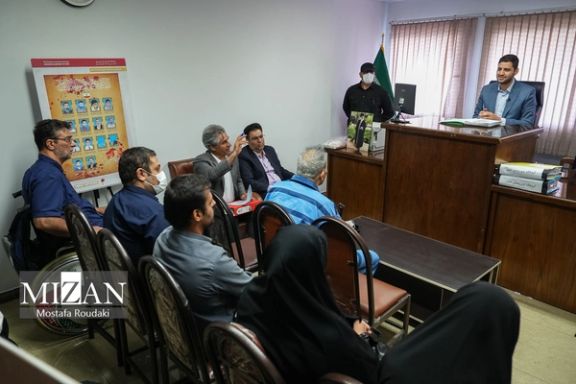
Several months after being sentenced to death, Jamshid Sharmahd, a dual national abducted in Dubai, has been given a new court hearing, with threats of additional charges.
Sharmahd, who holds German and Iranian citizenship, was abducted by Iranian agents in 2020, smuggling him to Iran. he was sentenced to death in February after being convicted of heading a pro-monarchist group named Tondar accused of a deadly bombing incident that occurred in 2008 at a religious center in Shiraz, killing 14 and injuring 215 more.
During his imprisonment, human rights organizations have raised concerns about the deteriorating health of the 68-year-old who has been held in solitary confinement with allegations of his being denied access to an independent attorney and fair legal procedures during his trial.
The US based activist whose group aims to restore the overthrown monarchy, toppled in the 1979 revolution, is believed to have been forced to confess to the charges against him, in line with innumerable cases under the regime. His family calls the allegations "ridiculous".
The Mizan News Agency quoted the judge presiding over the new hearing as saying the case is one seeking compensation and justice for the families of those lost in the 2008 bomb attack. “The case has been characterized as a lawsuit by families who have lost loved ones, witnessed injuries, or experienced disabilities in terrorist operations attributed to the Tondar group," judge Majid Hosseinzadeh said.
The issue of dual national hostages has resurfaced in light of the latest Qatar-brokered deal to free up $6bn in frozen Iranian funds in South Korea in exchange for five US citizens, leading to allegations that the Biden administration is playing a dangerous game encouraging the hostage-taking of yet more dual nationals abroad.
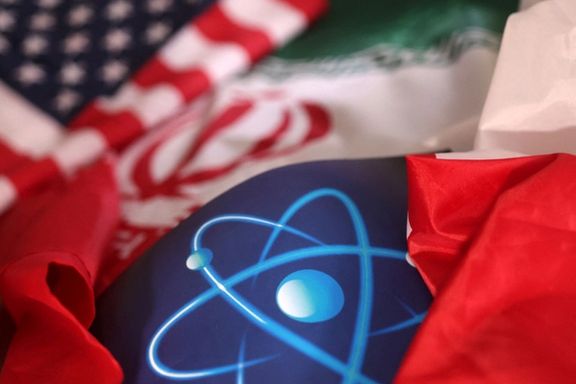
Iran’s chief nuclear negotiator and Deputy Foreign Minister Ali Bagheri-Kani has defended negotiations with the West as a means of securing “national interests.”
During a speech on Monday, Bagheri-Kani leveled criticism at opponents of negotiations, accusing them of stripping the regime of a vital and crucial “instrument for securing national interests.”
His remarks came amid an ongoing debate among the country’s politicians regarding the approach towards international negotiations over the country’s nuclear program. Bagheri-Kani's support for diplomatic interactions with the West seemed contrary to what his political camp was pushing for when hardliner Saeed Jalili was the secretary of the Supreme National Security Council (2007-2013) and former president Hassan Rouhani held office (2013-2021).
Bagheri-Kani was a protégé of hardliner Jalili, who was traditionally opposed to any accommodation with West and has been playing an influential role among Iran's hardliners who were incessantly attacking Rouhani over the JCPOA nuclear deal.
But Bagheri-Kani now maintains that Tehran sees negotiations as a vital means to secure national interests. “The redline in criticizing the government’s foreign policy is safeguarding national interests, not individuals or institutions,” he added.
“Foreign policy is not a realm of emotions but rather a field of beliefs, rationality, and intelligence," Bagheri-Kani said addressing a group of university professors. He pointed out that some try to portray "security and development" as being in conflict with "commitment to ideals and values," explaining that “sustainable security and development" is, in fact, contingent upon "adherence to ideals and values."
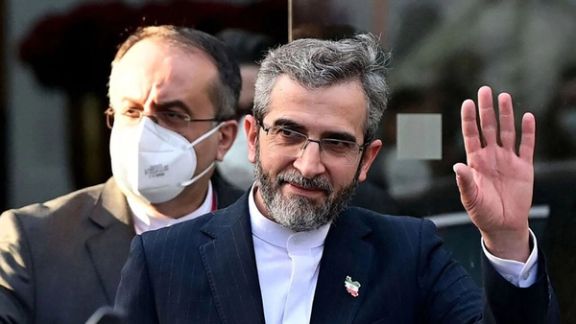
In a clear jab directed at hardliners, he said, "Those who, under the guise of defending values, seek to portray negotiations as fundamentally opposed to values are essentially aiming to deplete the regime's hand in utilizing this key and vital tool for national interests,” he stated.
Emphasizing that there is no obstacle to the talks aimed at reviving the 2015 nuclear agreement --officially known as the Joint Comprehensive Plan of Action (JCPOA), he said, "The Islamic Republic of Iran sees no obstacle to resuming negotiations and finalizing an agreement if the other parties act realistically and prevent repeating the past mistakes."
"The administration has never blocked the path to diplomacy, negotiations and efforts to secure the national interests through achievement of a balanced agreement," the senior diplomat said.
World powers were in talks in Vienna for 11 months in 2021-2022 to revive the 2015 Iran nuclear deal. The negotiations collapsed in March 2022 over Tehran’s demands that the Revolutionary Guards be removed from a US list of foreign terrorist organizations and ‘guarantees’ to cushion its economy and nuclear program from the US again leaving the accord. The Biden administration has been striving to bring the United States back into the JCPOA, a deal that was previously abandoned under the Trump administration.
Recently, Washington and Tehran reached a contentious agreement, whose details have been concealed from the public as well as lawmakers in Washington. The deal entails the release of five American prisoners detained in Tehran in exchange for five Iranian prisoners held in the United States as well as the release of $6 billion of frozen Iranian assets.
As a first step in this deal – which followed a two-year mediation effort by Qatar and Oman -- Iran on August 10 released four imprisoned US citizens from Evin prison into house arrest, where they joined a fifth already under home confinement.
These include businessman Siamak Namazi, 51, Emad Sharqi, 58, and environmental activist Morad Tahbaz, 67, who holds British nationality in addition to Iranian citizenship. The identities of the fourth and fifth Americans who either left prison or were under house arrest have not been disclosed.
Earlier in the day, the head of the UN's nuclear watchdog, IAEA's Rafael Grossi, said that bilateral talks between Iran and the United States could "provide clarity" and be beneficial.
Speaking at a news conference during the International Atomic Energy Agency 's (IAEA) 35-nation Board of Governors meeting in Vienna, Grossi acknowledged that Washington has informed the International Atomic Energy Agency of confidential talks with Iran, but he clarified that he is not privy to the details. He also added that Washington might be discussing the 2015 JCPOA nuclear deal with Tehran but the IAEA has a host of outstanding issues with Iran, including monitoring of its nuclear activities.
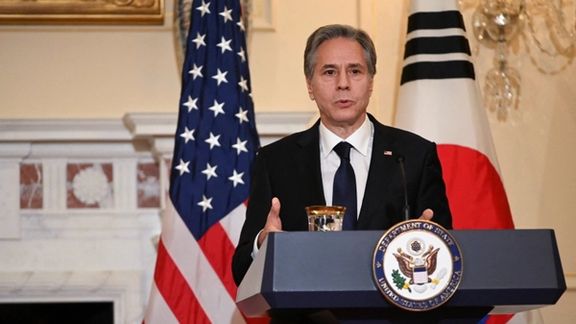
US Secretary of State Antony Blinken has signed a sanction waiver to allow the release of $6 billion of Iran’s frozen assets in a hostage release deal with Tehran.
The move will allow the funds blocked in two South Korean banks to reach Qatar without violating US banking sanctions imposed on Iran. According to the State Department document, Secretary of State Blinken determined that waiving the sanctions was in the national security interests of the United States.
Sources told AP that Blinken had approved the waiver last week, but Congress was only informed on Monday.
Both Washington and Tehran since announcing the prisoner release deal in August were hinting that the prisoner release deal and the unblocking of the funds were separate issues, but the waiver document clearly links the two as one agreement.
"Allowing these funds to be transferred from restricted Iranian accounts held in the (Republic of Korea) to accounts in Qatar for humanitarian trade is necessary to facilitate the release of these US citizens," the document said.
The news about the waiver came hours after an EU Commissioner expressed deep concern over the situation of Johan Floderus, a Swedish diplomat detained in Iran more than 500 days ago.

Floderus seems to be yet another victim of Iran's 'hostage diplomacy'. His case was kept secret for a long time by Sweden and the European Union in the hope that silence would secure his release.
On Monday, Ylva Johansson, the EU Commissioner previously responsible for Floderus's work, publicly addressed his case for the first time. "I'm very sad. I'm very worried," she said, “let’s hope that we can have him home soon”.
The long-kept secret of Floderus' plight first came to light in a New York Times report on 1 September. Shortly after, his family broke their silence and set out some details of his mistreatment in prison, including 24-hour lighting in the cell and over 300 days in solitary confinement.
Floderus turned 33 in prison last week.
In a statement published by a Swedish newspaper, Floderus’ family said he had spent some time in Iran on EU official business and had no issues. Sometime in early April 2022, he went back to Iran for vacation with his Swedish friends. On 17 April, he wanted to fly back home but was detained at Tehran’s international airport.
It’s not clear if Floderus had been advised against traveling to Iran on a personal capacity.
He has now joined a long list of foreigners and Iranian dual-nationals who in recent years have been detained in Iran and used as bargaining chips to force prisoner exchange or financial concessions.
Early August, four US dual-nationals were released from prison into house arrest in Tehran. Blinken said at the time that the move was the first step of a process to fly them home.
Opponents of the prospective deal say it encourages the Islamic Republic to detain more American and EU citizens.
Michael Rubin, a senior fellow at the American Enterprise Institute and a former Pentagon official, is a vocal critic of what seems to be the current EU/US policy towards Iran.
In a piece for Washington Examiner on Monday, he wrote: "When Iran brings a gun, Biden and his European partners wave cash. No wonder it is open season for Americans and Europeans worldwide."
Rubin lamented the 500-day silence over Johan Floderus' detainment and suggested that the authorities in Iran are looking to "trade him for Hamid Nouri".
Nouri is a former official of the Islamic Republic Judiciary who was arrested in Sweden and is now serving a life sentence for his involvement in the mass execution of up to 5,000 Iranian political prisoners in 1988.
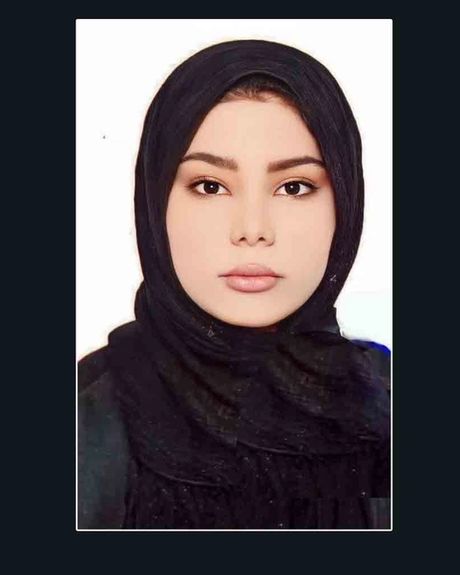
A tragedy unfolded in Ravansar in the Iranian province of Kermanshah as a 14-year-old child bride, Mona Aghaie, lost her life at the hands of her own brother.
According to the Center For Human Rights In Iran, the victim had been seeking a divorce before her life was cut short. Apparently, the brother killed her to uphold the family's honor.
The death of Mona Aghaie is not an isolated incident. Individual acts of violence, often referred to as honor killings, remain alarmingly intertwined with certain societal beliefs and Iran's legal framework. Many perpetrators of such acts are not brought to justice, especially when they are family members of the victim. This is particularly true if the perpetrator is the victim's father.
Iran's Islamic Penal Code includes a provision that fathers, and paternal grandfathers cannot be sentenced to death for killing their child or grandchild. Instead, they may face prison sentences and the obligation to pay "blood money" to the next of kin, typically the mother if demanded. Moreover, mothers have the authority to forgive the murderer entirely, waiving the blood money.
In cases of particularly violent crimes or those deemed to harm society, judges have the authority to impose additional sentences "on behalf of the public." However, the prevalence of honor killings in certain parts of Iran persists, largely due to the Islamic Republic's lenient laws and light sentences, which can encourage such behavior.
Advocates and organizations dedicated to women's rights and human rights have been calling for immediate action to address these pressing issues and ensure justice for victims like Mona.
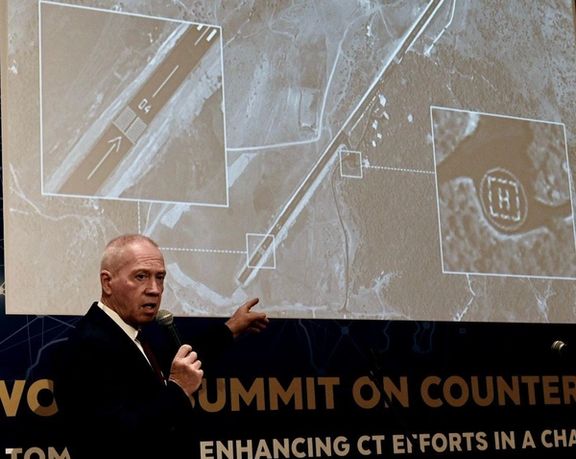
Israeli Defense Minister Yoav Gallant has leveled accusations against Iran, alleging the establishment of an airport facility in southern Lebanon.
Gallant asserted Monday that Iran's intention behind establishing the airport is to facilitate potential attacks against Israel.
Addressing an international security conference hosted by Reichman University, Gallant presented evidence in the form of aerial images of the alleged site. According to the defense minister, the site is strategically situated approximately 20 kilometers (12.4 miles) from the Israeli border town of Metulla and possesses the capacity to accommodate mid-sized aircraft.
The backdrop to this accusation is the current control of southern Lebanon by Hezbollah, an armed militant group backed by Iran, with which Israel engaged in a war in 2006. Recent months have witnessed a resurgence of tensions in the region, raising concerns about regional stability and renewed large-scale armed conflict.
For Iran's clerical regime, Lebanon serves as a foothold dominated by Hezbollah, affording them the means to threaten Israel. While many Shiites view Iran as a source of financial support, a significant portion of Lebanon's Christian and Sunni populations resent Hezbollah and Iran's growing influence.
The founder of the Islamic Republic of Iran, Ayatollah Ruhollah Khomeini and his successors, have consistently expressed enmity towards Israel and have repeatedly called for its destruction over the years. Iran's arming of Hezbollah with a substantial arsenal of rockets and missiles further compounds the security challenges, directly threatening Israeli cities due to Hezbollah's operational presence in Shiite-dominated southern Lebanon.






